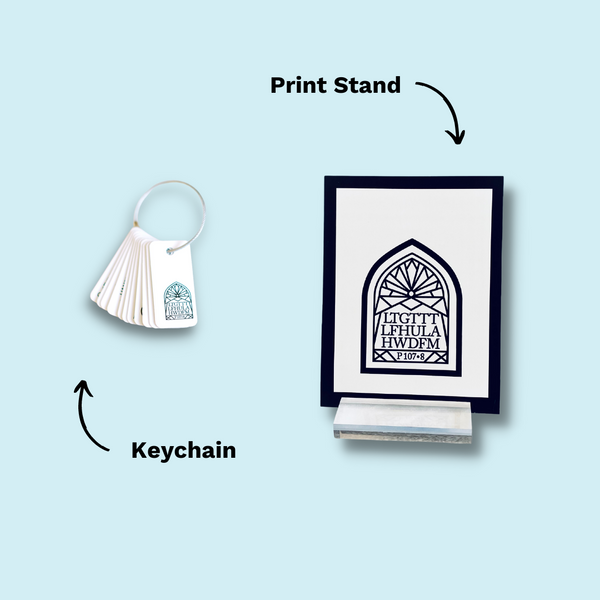HE MUST BECOME GREATER; I MUST BECOME LESS. — JOHN 3:30
A Pharisee, a prophet, and a wayward woman all walk into a bar…
Ok, maybe not. But they’re all “walking into” this post today. And we’re going to see how each of them responds to Jesus. Our little memory verse this month is the response of the prophet, John the Baptist. John says, “[Jesus] must become greater; I must become less” (John 3:30). It’s a worthy saying, something we should honestly want to say too. But the prophet isn’t the only one responding to Jesus. His reaction is sandwiched between Jesus’s interaction with a member of the religious elite and Jesus’s conversation with a known “sinner.” And when we look at them in sequence, we not only see three different responses to Jesus from three very different people, but we also see that John (the Gospel writer) is asking us (his readers) to consider our own response to Jesus.
A Book That Begs a Response
John wrote his Gospel (where we find our verse) with the express purpose of eliciting a reaction from his readers. He says that he wrote his book so “that you may believe that Jesus is the Messiah, the Son of God, and that by believing you may have life in his name” (John 20:31). John wants a response, but not just any response—he wants us to believe that Jesus is the Son of God and find life in him! And throughout his book, John makes his point repeatedly, telling story after story of people reacting to Jesus, either in belief or unbelief. So let’s take a look at the Pharisee, the prophet, and the wayward woman and see how their reactions might inform our own.
The Pharisee
A curious Pharisee, Nicodemus, comes to Jesus one night to figure out just exactly what Jesus is all about. But when Jesus tells this religious expert about the spiritual rebirth and renewal required to enter God’s kingdom, Nicodemus is totally confused and simply cannot believe it. And Jesus says this to him, “I have spoken to you of earthly things and you do not believe; how then will you believe if I speak of heavenly things?” (John 3:12, emphasis mine). Then Jesus goes on to say these famous words, “For God so loved the world that he gave his one and only Son, that whoever believes in him shall not perish but have eternal life” (John 3:16). This is what Jesus came for: to give eternal life to any who would believe in him, including Nicodemus. But Nicodemus just isn’t there yet. Though he knows more about God than most people, he doesn’t actually know God. This Pharisee is still a skeptic. And we, the reader, are left to consider Jesus’s offer. Do I need a spiritual rebirth? Is Jesus’s offer legit? Will I truly find life if I believe in him?
The Prophet
Right after this discourse, we find another conversation, this time about Jesus. The prophet, John the Baptist, is confronted by his disciples. They’re concerned that everyone is leaving John to follow Jesus. To this John says, “I’m merely a groomsman, Jesus is the groom. I’m here to hype up the crowd before the groom arrives, and now that Jesus is here, he deserves the spotlight, not me” (my paraphrase). John knows his own purpose and his significance. And he also knows Jesus’s purpose and significance. So, he challenges his disciples to put stock in Jesus, who is the Son of God, saying, “Whoever believes in the Son has eternal life, but whoever rejects the Son will not see life, for God’s wrath remains on them” (John 3:36). And we the readers must grapple with what John says. Is Jesus truly great and worthy of my belief? Am I willing to give up my own glory and instead give glory to Jesus? Will I accept him or reject him?
The Wayward Woman
After this, Jesus encounters a Samaritan adulteress at a drinking well. Though she’s an outcast among outcasts, Jesus cares for her by exposing the harsh reality of her situation and offering her a way out. Jesus offers her the eternal living water that comes from believing in him. And she takes it! Not only that, but she turns around and offers it to everyone she knows. And they too respond in belief, saying, “We no longer believe just because of what you said; now we have heard for ourselves, and we know that this man really is the Savior of the world” (John 4:42). This wayward woman has turned unlikely evangelist. And her story begs all who read it (even us) to consider our response to Jesus. Do I believe the testimony of this forgiven woman? Am I willing to admit my sins and failings like she did? Can Jesus really give me freedom and new life?
Our Response
These are deep and significant questions to consider. How will I respond to Jesus? As we’ve seen, there are really only two responses: belief or unbelief. In these stories, it’s easy to consider our own possible barriers for belief and possible responses. Nicodemus illustrates how difficult it can be to wrap our minds around the new spiritual life Jesus offers. Am I willing to step out in faith? John the Baptist’s disciples show us how tempting it is to seek our own glory. Am I willing to give up my glory like John did in order to embrace Jesus’s glory? The Samaritan woman shows us how Jesus exposes our sin in order to show us a better way. Am I willing to confess my sin and find forgiveness and freedom? These are the questions these stories ask us to consider. How will you respond to Jesus?




